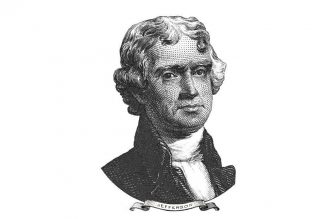Remembering God involves more than thinking about him or having warm feelings toward him. Remembrance involves the dreaded “O” word: obedience. For the Jews, remembering involved obeying the law that God had given on Mount Sinai.
But let’s be honest. Most of us aren’t thrilled when we hear the phrase “God’s law.” To many of us, talk of religious laws conjures the prospect of legalism, of being bound to a life of rigid rules and regulations. While English translations of the Bible translate the Hebrew word torah as “law,” Jewish translations often render it as “teaching” or “instruction.” So if we think about what transpired on Mount Sinai, it makes sense to think of it as the moment when God gave his people vital instructions for their journey. Without these instructions, they would never have reached the Promised Land. God was teaching them to become his followers, people who stayed close to him and did not stray. To obey would bring them great happiness. To disobey would bring them great pain. Rejecting God’s guidance would mean losing the fulfilling, vibrant life to which he had called them.
Why did the Israelites need instruction or guidance? Because they had entered into a relationship with God, and being in relationship always involves some kind of requirements. Students, for instance, have to be willing to learn from their teachers. Spouses have to love and serve each other. Friends have to be loyal. If these requirements aren’t met, the relationship will deteriorate.
Since this is true of human relationships, why should we be surprised to learn that being in relationship with a holy God also has its requirements? Belonging to God and enjoying his fellowship means that we give up the desire to be our own god. Belonging to him means that we are called to listen and do what he asks. It means that we love what he loves—justice and mercy and goodness. We are to be holy even as he is holy. That was God’s purpose for drawing his people out of Egypt in the first place. He wanted not just to free them from their captors but to love them and live in their midst.
So God chose Israel to belong to him in a special way, and Israel became holy. He gave them the gift of becoming his people. But the gift, as David Pileggi points out, requires “maintenance.”1
Imagine for a moment that someone has just given you a very expensive gift—the car of your dreams. For me that would be a 1957 Thunderbird. It would have a supercharged V–8 engine, fourteen-inch wheels, and a removable hard top complete with portholes. It would also be starmist blue. Now that would be a gift to cherish—and to care for. While I do not mean to equate our relationship with God to a vintage sports car, I do want to make the point that the priceless gift we have been given in God needs to be maintained. We maintain it by closely following his instructions and his teaching regardless of how we feel at any given moment.
God says, “You shall not steal,” so you don’t cheat people even when you feel backed into a corner. God says, “Honor your father and mother,” so you show respect whether or not your parents deserve it. God says, “You shall not commit adultery,” so you don’t sleep with someone just because you are in love. God says, “You shall have no other gods before me,” so you cherish his ways instead of bowing down to the idols of our era—political correctness, money, sex, power. As Pileggi says, “The gift is free, but the maintenance is costly.”
1. From David Pileggi’s unpublished sermon, “That I May Dwell among Them,” delivered on March 28, 2009, at the Narkis Street Congregation in Jerusalem (http://www.narkis.org/listen) (accessed June 27, 2019).










